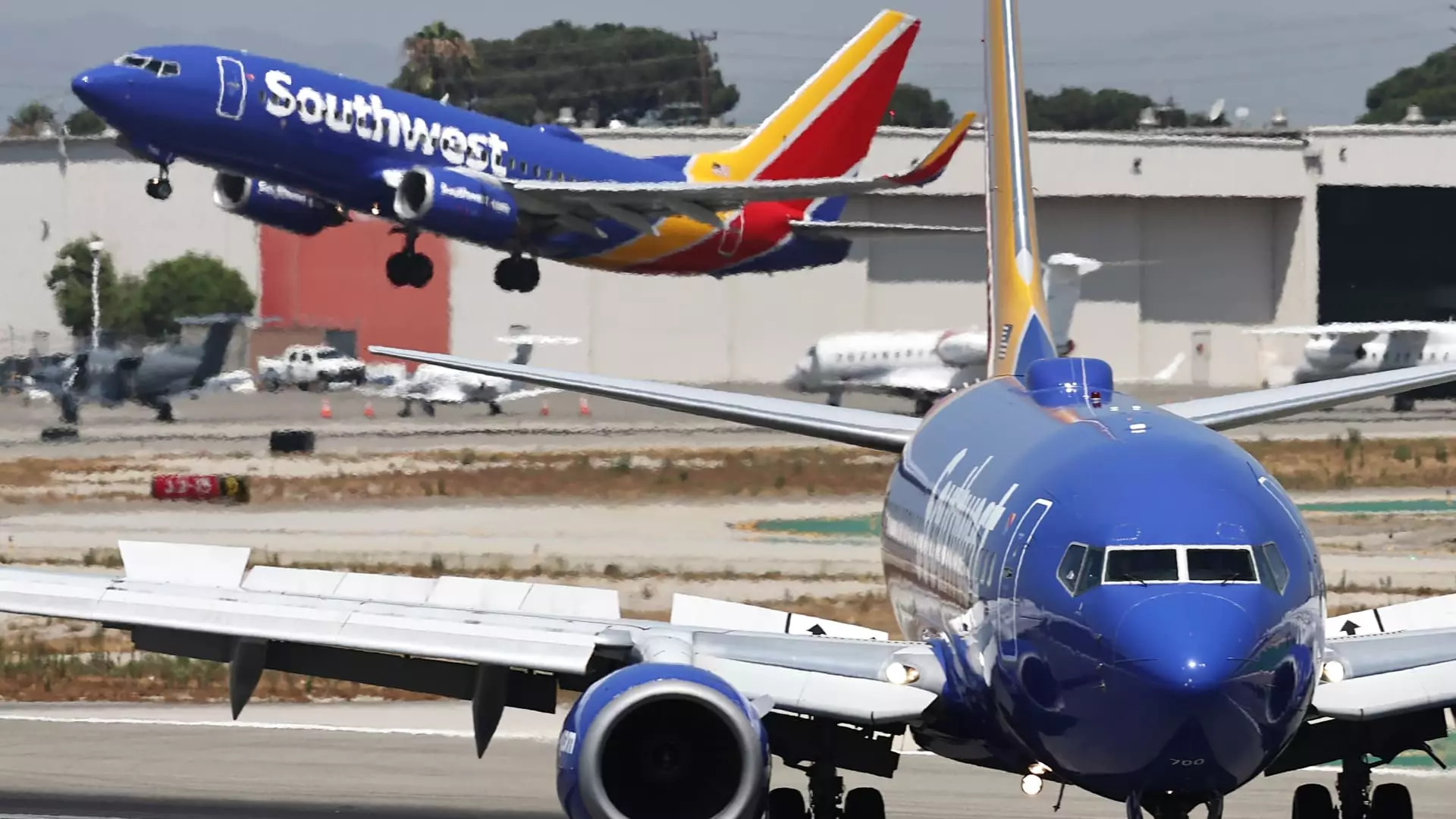In a significant move reflective of its resilience, Southwest Airlines recently revised its revenue outlook for the third quarter, signaling an anticipated increase in unit revenue of up to 3% compared to the previous year’s figures. This optimistic revision stands in stark contrast to prior expectations, which forecast a potential downturn of up to 2%. A vital factor contributing to this revenue enhancement is the strategic rebooking of passengers affected by the CrowdStrike outage back in July. This decision showcases the airline’s agility and responsiveness in catering to customer needs, which can fortify loyalty and drive revenue growth.
Moreover, the approval for a substantial $2.5 billion share buyback, sanctioned by the airline’s board, underscores Southwest’s commitment to returning value to its shareholders. This financial maneuver not only serves to bolster stock prices but also reflects management’s confidence in the airline’s long-term prospects amid a competitive landscape. Investors typically view share buybacks favorably, as they indicate a robust financial standing and a proactive approach to enhance shareholder earnings per share.
Amid these financial developments, Southwest Airlines announced the addition of Bob Fornaro to its board of directors. Fornaro’s extensive background as an industry veteran, particularly his leadership roles at Spirit Airlines and AirTran, brings valuable insights to the board. His appointment, coming after a decade-long relationship with Southwest, signals a deeper commitment to leveraging experienced leadership in navigating the volatile aviation market. This leadership expansion might be seen as a direct response to the pressures exerted by activist investor Elliott Investment Management, which has been vocal about its desire for a management overhaul to invigorate the airline’s strategic direction.
In a clear bid to rejuvenate its business model that has stood the test of time for over fifty years, Southwest unveiled several transformative strategies during an investor presentation in Dallas. Notably, the introduction of assigned seating and extra-legroom options aims to capture additional revenue streams. These changes reflect a significant pivot while also sparking debates around the traditional free baggage policy that has long distinguished Southwest from its competitors. By reaffirming its stance on free checked luggage, the airline positions itself as a customer-centric carrier willing to forgo some short-term revenue in favor of enhancing market share—a risky yet potentially rewarding strategy in a price-sensitive industry.
Concurrently, the planned reduction of services in Atlanta could portend further shifts in operational strategy. This decision to cut over 300 flight attendants and pilots underscores a critical focus on cost management and efficiency as the airline grapples with the increasing financial burdens in the post-pandemic environment.
Navigating through a dynamic and sometimes tumultuous landscape, Southwest Airlines stands at a crucial juncture. The recent financial forecasts and strategic shifts indicate a nuanced approach to both management and operational efficiency. As the airline works to regain investor confidence and enhance its market position, the outcomes of these maneuvers in response to Elliott’s pressures will undoubtedly shape the trajectory of Southwest Airlines moving forward. The balancing act of innovation against tradition will likely dictate the company’s success in a fiercely competitive market.

